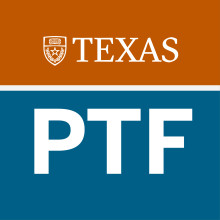Individual Fellow Initiatives

QR Learning for addressing social and racial injustice
The current proposal envisions developing alternative pedagogical materials for the “Measuring Racial Inequality” course, written in plain language and accessible to students from social sciences/humanities and underserved communities and families.

Disability Justice as Pedagogical Practice
Within social work curriculum, the topic of disability is either explicitly absent or medicalized. The lack of a rich understanding of disability as a cultural experience that intersects with other cultural experiences is concerning given our ethical guidelines of cultural competence and equity. Additionally, not only are students excluded via this omission, but so are faculty, staff, and social workers working in the field. Approximately a quarter of the population identifies as having a disability, yet our curriculum barely acknowledges their experiences.

Mentored 2 Mentor
This project focuses on training Clinical Audiology Doctoral students (AuD) to be clinically certified supervisors upon entering the field post-graduation. According to the American Speech-Hearing Association (ASHA), Texas ranks 48 out of 50 states for the number of clinically certified audiologists who are needed to supervise doctoral students in order for those students to have ASHA-approved hours (https://www.asha.org/siteassets/surveys/audiologist-and-slp-to-populati…).

Teaching Engineering through Murder Mysteries and Personalized AI Tutor
CE 357: Introduction to Geotechnical Engineering is a third year required undergraduate course that has traditionally been a challenging course for students due to its abstract nature. The average course rating for CE 357 is 3.8 in the last twenty years. I have successfully transformed the lecture modules to achieve a significant increase in interest and students’ performance in the course. Although preliminary work looks promising, I want to scientifically evaluate the effectiveness of the course and publish the findings.

Strengthening the Sustainability Studies Degree
Sustainability Studies graduated its first sizeable cohort in 2022, and the program has yet to undergo a comprehensive review. Conversations with students revealed their desire for better access to the professional field of sustainability across the sectors of non-profit, government, and business. This is an area that the current structure of the degree does not adequately address. To address these concerns, I am proposing a three-pronged approach. My first initiative is to build a database of internships across the three sectors mentioned above.

The Collaboratory: Interdisciplinary, Arts-based Pedagogy for Use in New and Emerging Learning Environments
One of the top concerns from many employers is that college graduates lack the “soft skills” (collaboration, team-based skills)and professionalism they require. Collaboratory students will have the opportunity to master the latest skills in their field and develop “soft skills” like creative problem-solving problem solving and communication to help them thrive over the course of their careers.

Peer Learning Assistant Program Guidelines and Curricula
The Peer Learning Assistant Program within the Department of Chemistry is a program developed with resources from the Provost Teaching Fellows program to enhance the educational experience of students taking general chemistry by training and employing Peer Learning Assistants (PLAs) to service large blended general chemistry courses. The large (300 –500 students) blended courses have replaced the straight lecture model with active, student centered, learning. Active learning requires coaching and in a large class it is impossible to implement with only one instructor and one tea

Clinical Advancement in Simulated Environments
Among the communication disorders considered to be fundamental to the scope of practice for speech-language pathologists, stuttering or what is also commonly referred to as a fluency disorder has historically been and continues to be the disorder for which most speech-language pathologists report minimal to no clinical or academic exposure and/or competency.

Dynamic Practice and Assessment System for Statistics Course(s)
Mastery of the use and interpretation of statistical techniques requires a lot of practice. Similarly, statistics is only mastered with a lot of practice. However, instructors unfortunately only have a finite amount of time available to create an endless supply of new problems and associated answers. They also do not have an endless amount of time to provide hints to help students find their own way past their misconceptions. In addition, it is very difficult for students to receive immediate feedback to understand what they are doing and what they need to do.

McCombs Student Journal
The McCombs Business Journal was an effort to give students an opportunity to read and write about research. We recruited students, worked with the students to establish an organizational structure, set expectations for members, and selected student leaders. Students read a significant amount of research and wrote summaries, focusing on how that research impacts the real world.

